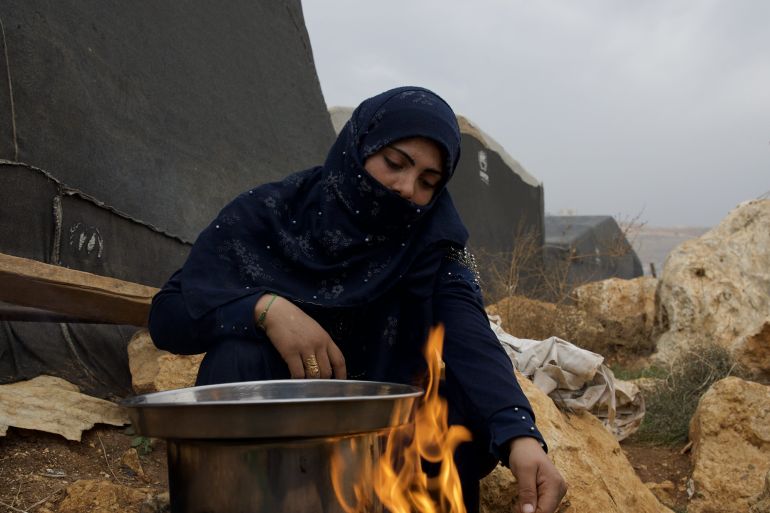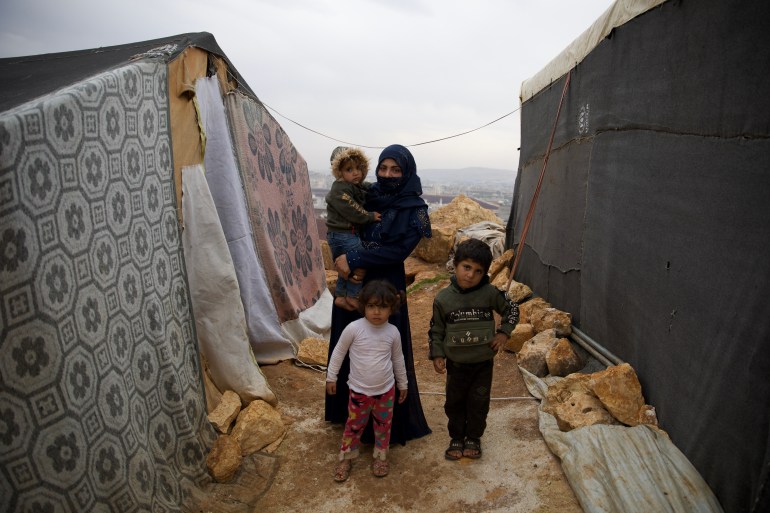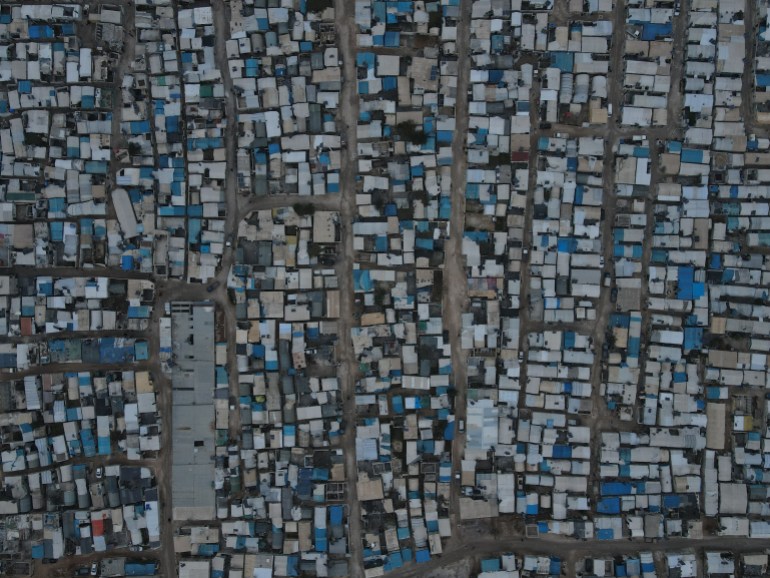World Food Programme to end general assistance in northwest Syria
The UN agency’s decision comes amid a funding shortage as northwest Syria faces increasing food insecurity.

The World Food Programme (WFP) says it will stop its general food assistance programme across Syria at the start of 2024 due to funding shortages.
It will, however, continue to support families affected by emergencies and natural disasters through smaller, more targeted emergency interventions.
Keep reading
list of 4 itemsWFP announces partial suspension of Yemen aid
Food aid for 1.4 million people in Chad to ‘grind to a halt’ soon, WFP says
WFP suspends food distribution in Houthi-controlled areas of Yemen
This marks the seventh time WFP has announced a reduction in aid to Syria. The latest announcement was on June 13 when it declared a cut in food assistance to about 2.5 million people, down from the previous 5.5 million, citing a funding crisis.
“WFP is now at a crucial turning point in Syria, necessitating difficult decisions,” a spokesperson said in a statement.
The approach WFP had been following was to give smaller amounts of food to try to reach more people overall, the statement said. Despite that, resources remain insufficient, prompting the programme to reassess its approach to food assistance in Syria.
WFP announced that among the programmes it will continue to support is the Livelihoods Support Programme for agricultural families, along with interventions supporting local food systems, such as rehabilitating irrigation systems and bakeries.
“Starting in 2024, the programme’s goal is to transition from broad-scale general assistance to more targeted aid, directing limited resources more effectively to those facing severe food insecurity,” the statement said.

The United Nations Office for the Coordination of Humanitarian Affairs (OCHA) estimates that northwest Syria is home to 4.5 million people, with 1.9 million living in camps for displaced people.
“The decision to reduce WFP assistance has shattered us psychologically and will burden us financially because we cannot afford to buy the food that used to come in our aid basket,” said Yasmin Alhamou, a 23-year-old mother of three living in a displacement camp on the Syrian-Turkish border.
Alhamou and her family fled from Hama when she was a child in 2012 to northwest Syria, moving between camps before settling in a camp near the town of Sarmada in northern Idlib.
“We used to receive an aid basket every month, then it was reduced to a basket every two months, which isn’t enough to meet our needs for more than 10 days. Today, given the new decision, we’re not sure what our future will look like,” she said.
Alhamou told Al Jazeera that the decision comes at the toughest time as winter sets in, a time when camp residents rely heavily on food assistance so they can use whatever meagre wages they manage to earn to pay for other expenses like heating fuel and firewood.

“This will be the toughest winter for us because we will have to forgo purchasing heating materials to buy the food we need to survive,” said Alhamou.
“My husband spends most of his day looking for work and when he finds some. His daily wage doesn’t exceed $3, which isn’t enough for even one meal a day,” she added.
Extreme poverty threatens northwest Syria
More and more families in northwest Syria are living below the poverty line, with the number reaching 91.10 percent at the end of 2023. Families facing food shortages have increased to 40.78 percent, while the overall unemployment rate has reached 88.74 percent, according to the Syria Response Coordination Group.
The group said the reduction in humanitarian aid entering Syria since July has led to price increases. Additionally, the surge in the exchange rate for the Turkish lira, which is used in the area, has led to price hikes ranging from 14 to 66 percent for various goods.
“The suspension of support provided by the United Nations to the residents of the region will weaken purchasing power, forcing suppliers and investors to reduce their production and investments, leading to a decline in trade, an increase in unemployment, and rising poverty levels,” said Hayan Hababa, an economic expert from the city of Idlib.
Hababa told Al Jazeera that the region continues to experience economic contraction and slowdown due to resource shortages and rising prices caused by global inflation waves.
This situation further affects people in the area who already have a hard time finding paying work.
“A significant percentage of the population primarily depends on the food basket or the purchasing voucher provided by humanitarian organisations,” said Hababa.
“The region is on the brink of a humanitarian and economic disaster after the decision to reduce aid.”